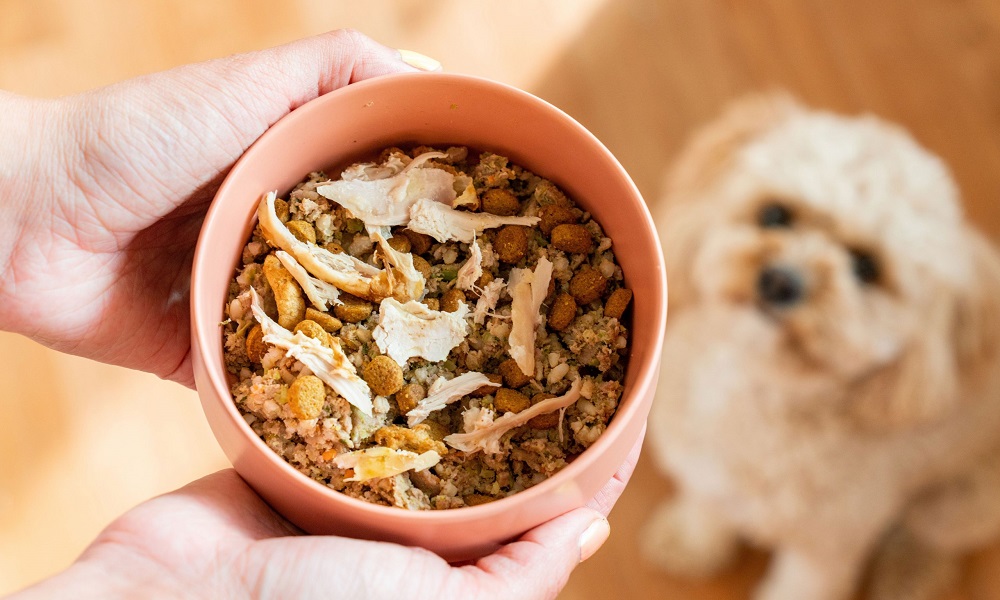Come Thanksgiving and the winter holidays, many pet owners find themselves with excess turkey and wonder if it’s safe to share with their furry friends. While lean turkey meat is perfectly healthy for dogs what about other parts like the giblets? Can puppies eat turkey giblets too? Let’s explore the potential benefits and risks.
What Are Turkey Giblets?
Turkey giblets refer to the internal organs of the bird typically including
- Liver
- Heart
- Kidneys
- Gizzard
These nutrient-dense odd bits are usually packaged inside the turkey cavity when you purchase a whole bird. Cooks often use giblets to make broth, gravy, or stuffing But before feeding any to your pup, there are some important safety tips to know.
Are Giblets Safe for Puppies?
Turkey giblets can make a nutritious occasional treat for puppies in moderation. The giblets are full of protein, healthy fats, and micronutrients like iron and B vitamins.
However, there are some precautions to take:
-
Always cook giblets fully – Raw poultry carries a risk of salmonella. Cook giblets thoroughly to kill bacteria.
-
Avoid seasonings/onions/garlic – These additions can be toxic for dogs. Stick to plain cooked giblets.
-
Remove bones – The neck may contain small bones that are a choking hazard. Take any bones out before feeding.
-
Prevent gastrointestinal upset – Too much organ meat may cause loose stools. Introduce new foods slowly.
As long as you follow these guidelines, turkey giblets make a nutrient-packed occasional snack. But they shouldn’t become a regular part of your puppy’s diet.
Nutritional Benefits of Turkey Giblets
In small amounts, cooked turkey giblets can provide puppies with:
-
High-quality protein – Supports growth and development. Turkey is slightly higher in protein than chicken.
-
Healthy fats – Provides energy. Giblets are higher in fat than lean meat.
-
Vitamins and minerals – Important for vision, bone health, immunity and more. Organ meats like liver are especially nutrient-dense.
-
Chondroitin and glucosamine – Natural compounds that support joint health. Highest amounts are found in the cartilage of the neck.
While giblets can’t replace a balanced puppy food, they make a tasty supplement in moderation.
Serving Turkey Giblets to Puppies
Follow these tips for safely feeding turkey giblets to your pup:
-
Wash giblets thoroughly and pat dry. This removes germs and debris.
-
Cook fully either by boiling, searing in a pan, or roasting until no pink remains. Cooked to 165°F internally.
-
Cut into pieces that are bite-sized and easy to chew. Remove any bones.
-
Cool before serving. Hot giblets could burn a puppy’s mouth. Wait until warm or room temp.
-
Add to meals or serve as occasional treats. Too much organ meat may cause diarrhea.
-
Refrigerate leftovers promptly. Only keep 3-4 days to prevent spoilage.
How Much to Feed Puppy?
When introducing any new food, go slowly:
-
Start with just a few small pieces of giblets at first.
-
Gradually increase the amount you serve every few days.
-
Feed giblets as no more than 10% of your puppy’s daily calories.
-
If puppy has diarrhea, scale back and try again more slowly.
Puppies have sensitive stomachs, so watch for any digestive upset. Reduce portions or stop feeding if giblets cause loose stool.
Turkey Giblets FAQs
Still have questions about feeding turkey giblets to puppies? Here are some common queries:
Are raw giblets safe?
No, always cook giblets fully before feeding to puppies. Raw poultry may contain salmonella.
Can I add seasonings or garlic?
Avoid any seasonings, onions, or garlic as these can be toxic for dogs. Only feed plain cooked giblets.
What are the risks of bones?
Bones can splinter and cause choking or punctures. Be sure to remove any bones before serving.
How often can puppies eat giblets?
Giblets should only be an occasional snack, not a regular part of your puppy’s diet. Feed no more than a few times a month.
Will turkey giblets upset my puppy’s tummy?
Too much organ meat at once may cause loose stool. Introduce slowly and reduce portions if diarrhea occurs.
Can giblets replace my puppy’s regular food?
No, giblets do not provide complete nutrition. They should only supplement a quality puppy food, not replace it.
The Bottom Line
During the holidays when whole turkeys are plentiful, the giblets can make a nutritious occasional snack for your puppy. Cook them thoroughly, remove any bones, introduce new foods slowly, and supervise your puppy when serving giblets. In moderation, they provide protein, healthy fats, and key nutrients puppies need. But be sure to still feed a complete and balanced puppy food for optimal nutrition. By following some basic guidelines, turkey giblets can be a safe seasonal treat puppies will gobble up!

Choose Fresh and High-Quality Turkey Giblets
When selecting turkey giblets, opt for fresh, organic giblets from a reputable source. Quality matters when it comes to providing the best nutrition for your dog. Make sure the giblets are free from any added seasoning, preservatives, or flavorings.
Prepare and Clean the Giblets
Wash the turkey giblets under cold running water to remove any dirt or residue. Remove excess fat and separate the organs if they are still connected. Be cautious of any bones or cartilage that may be present, as they should be removed to prevent choking hazards.
